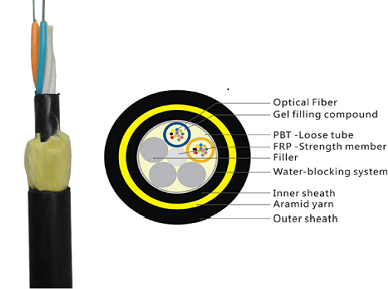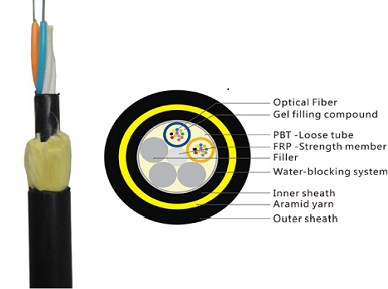



The optical cable is mainly composed of optical fiber, plastic protective sleeve and plastic outer skin. There is no metal such as gold, silver, copper and aluminum in the cavo ottico.
The basic structure of optical cable is generally composed of cable core, reinforcing steel wire, filler and sheath, eccetera. Inoltre, there are waterproof layer, buffer layer, insulated metal wire and other components as needed.
The integrated wiring project is a relatively complex project, so it is impossible to ensure zero faults in the construction of the project. Tuttavia, it is relatively easy to minimize the faults and mistakes. There are four major reasons for the failure of fiber optic cable lines.
The armored components of the optical cable are all metal conductors. If the power line is short-circuited or the lightning strikes the metal parts, a strong current will be generated to damage the optical cable line equipment. And even serious casualties will occur.
If the optical cable line is not well insulated, the operating strength of the optical cable will be greatly reduced due to stress corrosion and static fatigue. After the splice box enters the water or is wet, and the optical cable will break in severe cases.
Line faults are often caused by external forces. Since many optical cable lines are laid in the field, the general burial standard is deep below the stratum. So the damage of many external factors to the optical cable line cannot be effectively avoided
Faults are most likely to occur at the line joints. This is because the optical fibers at the joints no longer have the protection power to the original optical cable structure or the protection power has been significantly weakened. So the daily operation and protection work can only be carried out by relying on the joint box. The probability of failure is greatly increased.
Optical fiber cable is a new generation of transmission medium. Compared with copper medium, optical fiber has greatly improved in terms of security, reliability and network performance. Inoltre, the bandwidth of optical fiber transmission greatly exceeds that of copper cables. And about the maximum connection distance, it supports is more than two kilometer. And it is an inevitable choice for building larger-scale networks. Because the fiber optic cable has the advantages of good electromagnetic interference resistance, strong confidentiality, fast speed, and larger transmission capacity. Its price is also relatively expensive, and it is rarely used in household occasions.
For more information about cable products, welcome to Contattaci direttamente.
In occasione del Capodanno 2025, ZMS Cable wishes every customer and partner a…
L’industria medica europea ha assistito a progressi significativi negli ultimi anni, driven by the integration…
Il successo del lancio di un razzo comporta una delle imprese ingegneristiche più complesse che si possano immaginare,…
I cavi in fibra ottica sono diventati la spina dorsale delle moderne telecomunicazioni, offering high-speed data transmission over…
I cavi in rame ad alta tensione sono componenti essenziali nella distribuzione e trasmissione dell'energia elettrica,…
Railroad high voltage lines play a vital role in powering the railway systems that transport…